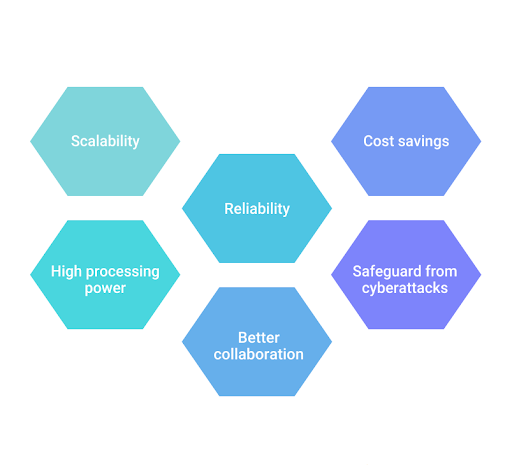Cloud servers are known to offer businesses flexibility, scalability and efficiency. However, to take full advantage of these benefits, you need to define the right server configuration when building IT infrastructure. In this article, we will go through the basic steps and criteria that will help you determine this.
Why cloud server requirements are important?
When deploying a cloud server, there are logical technical questions - the amount of CPU, RAM and storage required. To understand exactly what server parameters the server should have, it is useful to perform load tests. Cloud providers offer such services. Moving to the cloud without first assessing your needs can be risky. Firstly, you may miscalculate costs and end up paying for unused resources. In addition, choosing the right server options will ensure that your operations run smoothly and scalability is seamless.

How to calculate vCPU requirements
A vCPU is a virtual CPU that separates the hypervisor from the physical CPU when virtual machines (VMs) are created. The number of cores in a vCPU determines the number of threads an application can operate on and therefore its capabilities.
vCPU performance can be calculated using the CPU Usage parameter. It shows the percentage of CPU usage for a given period. If the virtual machine's cores are consistently loaded to 80% and above, such indicators show that the virtual machine is at its peak load. In this case, you need to increase the number of vCPUs. The virtual machine cores should not be loaded to the peak; otherwise, the virtual machine might not be able to cope with the load.
There is no single formula for calculating vCPU. You just should understand the nature of the application's tasks. We recommend starting with 2 vCPUs and increase as needed.
How to calculate the amount of RAM
RAM is the most critical parameter of a server. Too little capacity may result in your system downtime. When allocating memory, it is better to consider a reserve. Most providers offer a variety of configurations, such as memory-optimized, which are best suited to fast running workloads that process in-memory datasets.
The recommended amount of memory for cloud servers is between 8GB and 64GB. This is typically appropriate for application and web servers.
How to calculate storage requirements
Take into account the amount of disk space required for the operating system, applications, databases, email, security and other tools. Leave some extra space for possible growth or expansion. Make sure you always have at least 15% free space on your hard drive.
How to estimate bandwidth requirements
Bandwidth depends on the applications and file sizes hosted on your cloud server. When choosing a bandwidth plan, consider how many users will be accessing your cloud server. The more simultaneous users accessing data, the more bandwidth will be required. Do not forget to allow for unexpected traffic spikes.
A common mistake is to calculate resource requirements based on the 'normal' state of the IT infrastructure. The problem is that this approach does not take into account the likelihood of peak loads. In addition, equipment may simply fail at the crucial moment, causing a breakdown or loss of data.
It is very important to use a server configuration for your business tasks that allows you to quickly increase capacity or that already has additional resources for scaling.
Determining server configuration is not just a task for technical experts; it is also a critical business decision. At Cloud4U you can get a server that suits your business needs. Customers do not have to choose infrastructure from off-the-shelf plans and overpay for resources they do not need. Once the server is created in the personal account, the user can easily change any parameter.



